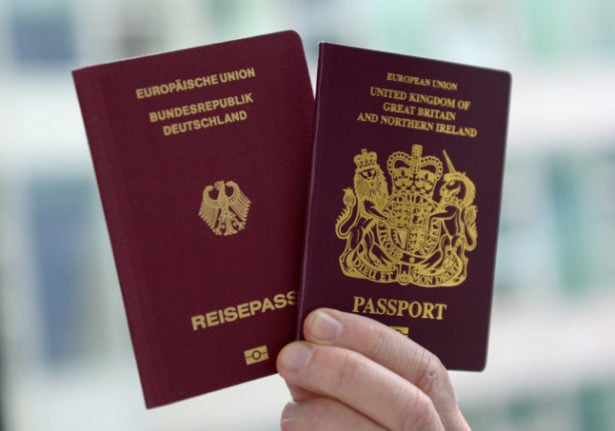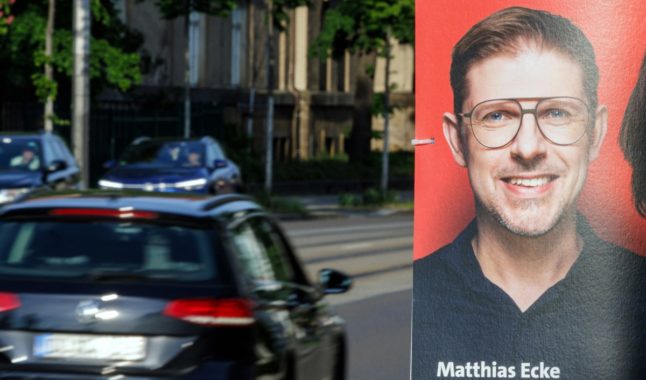Germany’s new coalition government released its coalition agreement on Wednesday, which laid out its intention to “simplify the path to German citizenship” and move towards a modern citizenship law.
READ ALSO: LATEST: Germany’s next government sets out roadmap for post-Merkel era
Significantly, the agreement states that the law will be changed to enable ‘multiple citizenships’, suggesting that the traffic light parties will permit dual nationality for non-EU citizens.
Currently, non-EU citizens who did not grow up in Germany must generally choose between German and foreign citizenship after reaching the age of 21.
The agreement will also shorten the time frame for applying for naturalisation to only five years – or three years in the case of special integration achievements.
Until now, non-Germans who are not married to a German could only apply for naturalization after having continuous legal residence in Germany for eight years. This could be reduced to seven years with completed integration course, or six years with German language skills better than level B1.
READ ALSO: EXPLAINED: How German citizenship differs from permanent residency
Easier process for the guest-worker generation
The coalition has also laid out their intention to make naturalization easier for members of the so-called “guest worker” generation. Guest workers were mainly Turkish workers from abroad who were recruited to work in industries such as agriculture, construction, steel, automotive and mining from the mid 1950s to early 1970s.
The agreement wants to “recognise the lifetime of achievements” of this generation, by lowering the language level that must be proven for this group, and by introducing a general hardship regulation for the required proof of language proficiency.
The coalition also intend to launch a campaign to inform people about the possibilities of acquiring German citizenship and to expressly welcome the holding of naturalisation ceremonies.



 Please whitelist us to continue reading.
Please whitelist us to continue reading.
Great news.
Now, I can finally enjoy dual citizenship! I have lived here 15 years, and I passed the Einbürgerungstest over 3 years ago, and I have C2 Level German, but I wasn’t willing to give my American passport.
Having just missed the threshold set by Brexit to qualify for dual nationality, this is looking interesting. Very interesting!
Can anyone clarify the apparent discrepancy between “the time frame for applying for naturalisation to only five years – or three years” and the next paragraph where it says six or seven years?
3-5 years is proposed change but the current rules are 8 years, but reduced to 7 if a integration course is completed and 6 if you have more than B1 German.
I am looking forward to the actualization of this idea. Hopefully, it will happen soon.
What about German citizen living abroad, can we naturalise without acquiring a retention permit ?
I would also like to know if as a German living abroad, if I now no longer need to apply to be able to keep my German citizenship when living overseas and applying for another citizenship? Does anyone know more about this? Thanks in advance
I asked about the same thing, i think if they allow dual citizenship this would also apply to us.
Thank you, let’s hope. Would make life a lot easier!